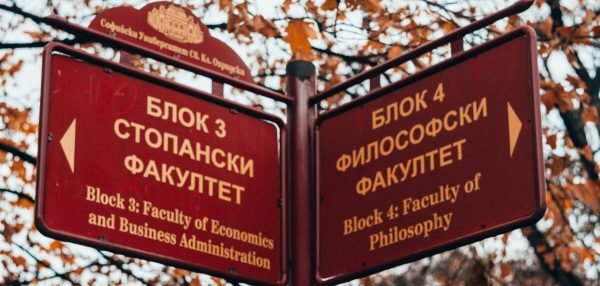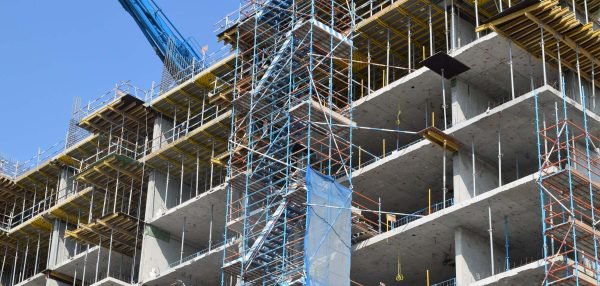Publications
Nikolaev and Partners provides free access to some of the publications of its teams members in specialized legal magazines, scientific collections and from participation at conferences on various topics. The articles describe the magazines where they were first published, for information and reference, if needed.
The new provision of Art. 433, para. 4 of the Civil Procedure Code and the current case law after the enactment of the Interpretative Decision of 10.07.2018 under Interpret. d. № 1/2015, OSGTK of the Supreme Court of Cassation, which in fact prohibited the deletion of the imposed injunctions in enforcement proceedings.
The practice of the national courts with regard to the provision of Art. 444, item 7 of the Civil Procedure Code, as well as the very concept of “housing” within the meaning of the cited provision, the current legislation and the practice of the European Court of Human Rights.
The competition between the entered into force bailiff’s allocation without its actual execution with the universal compulsory execution in view of the provision of art. 638, para. 2 of the CA and the scope of the bankruptcy estate.
The new provision of Art. 433, para. 4 of the Civil Procedure Code and the current case law after the enactment of the Interpretative Decision of 10.07.2018 under Interpret. d. № 1/2015, OSGTK of the Supreme Court of Cassation, which in fact prohibited the deletion of the imposed injunctions in enforcement proceedings.
The practice of the national courts with regard to the provision of Art. 444, item 7 of the Civil Procedure Code, as well as the very concept of “housing” within the meaning of the cited provision, the current legislation and the practice of the European Court of Human Rights.
The competition between the entered into force bailiff’s allocation without its actual execution with the universal compulsory execution in view of the provision of art. 638, para. 2 of the CA and the scope of the bankruptcy estate.
The article examines the cases in which the contractually agreed interest rate goes beyond the bounds of good manners and contradicts the mandatory norms of the law, leading to its nullity.
The grounds for issuing an enforcement order under Art. 410, para. 1, item 1 of the Civil Procedure Code for removal of an owner, user or occupant of a building in condominium regime under the preconditions provided in the Condominium Ownership Management Act (COMA) and the Ownership Act (OA).
The possibilities for carrying out finishing works independently by buyers of non-real estate "on the green" under preliminary contracts, when the construction is stopped regardless of the reasons, as well as the risks, the necessary actions and financing of the construction are studied.
The possibilities for the husband and wife to include arrangements in a marriage contract that affect third parties are considered, including arrangements in favor of other relatives of the parties to the contract, their creditors or other arrangements in favor of the children.
A comprehensive analysis of the current Bulgarian legislation concerning cryptocurrencies, transactions with them, licensing requirements for operations with cryptocurrencies and other additional issues has been made, including the European regulations in the field.
The options for termination of the enforcement proceedings against the main debtor and the possibility for termination against the state as an associated creditor for public and private receivables have been established.
The possibility of consumer protection when concluding preliminary contracts for the purchase and construction of real estate off-plan purchase, as well as the general cases of contracts for construction.
A full analysis of the possibility of changing the price of real estate with a preliminary contract for the off-plan purchase and construction, the historical development of the legal system, as well as examples and solutions in the legislation of third countries.
The article examines cases of prohibition of participation in public sales of interested parties, including representatives of the debtor and the bankrupt company, security guards, bailiffs, trustees and lawyers.
The article examines the options for deleting the credit history from the Central Credit Register of the Bulgarian National Bank.
The consequences of the cancellation of a construction contract and the contradictions in the judicial practice regarding the reverse effect of the cancellation are considered.
The content of the concepts of customary gifts and donations and their taxation under the Law on Local Taxes and Fees was investigated.
The legal problems in renovating the independent objects in the buildings from the point of view of the Territorial Planning Act and the Condominium Management Act were considered.
The article examines the cases in which the contractually agreed interest rate goes beyond the bounds of good manners and contradicts the mandatory norms of the law, leading to its nullity.
The grounds for issuing an enforcement order under Art. 410, para. 1, item 1 of the Civil Procedure Code for removal of an owner, user or occupant of a building in condominium regime under the preconditions provided in the Condominium Ownership Management Act (COMA) and the Ownership Act (OA).
The possibilities for carrying out finishing works independently by buyers of non-real estate "on the green" under preliminary contracts, when the construction is stopped regardless of the reasons, as well as the risks, the necessary actions and financing of the construction are studied.
The possibilities for the husband and wife to include arrangements in a marriage contract that affect third parties are considered, including arrangements in favor of other relatives of the parties to the contract, their creditors or other arrangements in favor of the children.
A comprehensive analysis of the current Bulgarian legislation concerning cryptocurrencies, transactions with them, licensing requirements for operations with cryptocurrencies and other additional issues has been made, including the European regulations in the field.
The possibility of consumer protection when concluding preliminary contracts for the purchase and construction of real estate off-plan purchase, as well as the general cases of contracts for construction.
A full analysis of the possibility of changing the price of real estate with a preliminary contract for the off-plan purchase and construction, the historical development of the legal system, as well as examples and solutions in the legislation of third countries.
The article examines cases of prohibition of participation in public sales of interested parties, including representatives of the debtor and the bankrupt company, security guards, bailiffs, trustees and lawyers.
The paper analyses the legislation and case law on the competing property rights of landed properties and the illegal constructions in them, which are not subject to removal due to the regime of tolerability.
The possibility of acquiring real estate through payment in virtual currencies (cryptocurrencies) is explored, as well as all the peculiarities of the notarial proceedings in connection with the execution of the transaction, including taxes and fees payable.
An analysis is made of the current legislation and case law on the possibility of making an in-kind contribution to the capital of a commercial company through cryptocurrency.
The article examines the options for deleting the credit history from the Central Credit Register of the Bulgarian National Bank.
The consequences of the cancellation of a construction contract and the contradictions in the judicial practice regarding the reverse effect of the cancellation are considered.
The content of the concepts of customary gifts and donations and their taxation under the Law on Local Taxes and Fees was investigated.
The legal problems in renovating the independent objects in the buildings from the point of view of the Territorial Planning Act and the Condominium Management Act were considered.





















